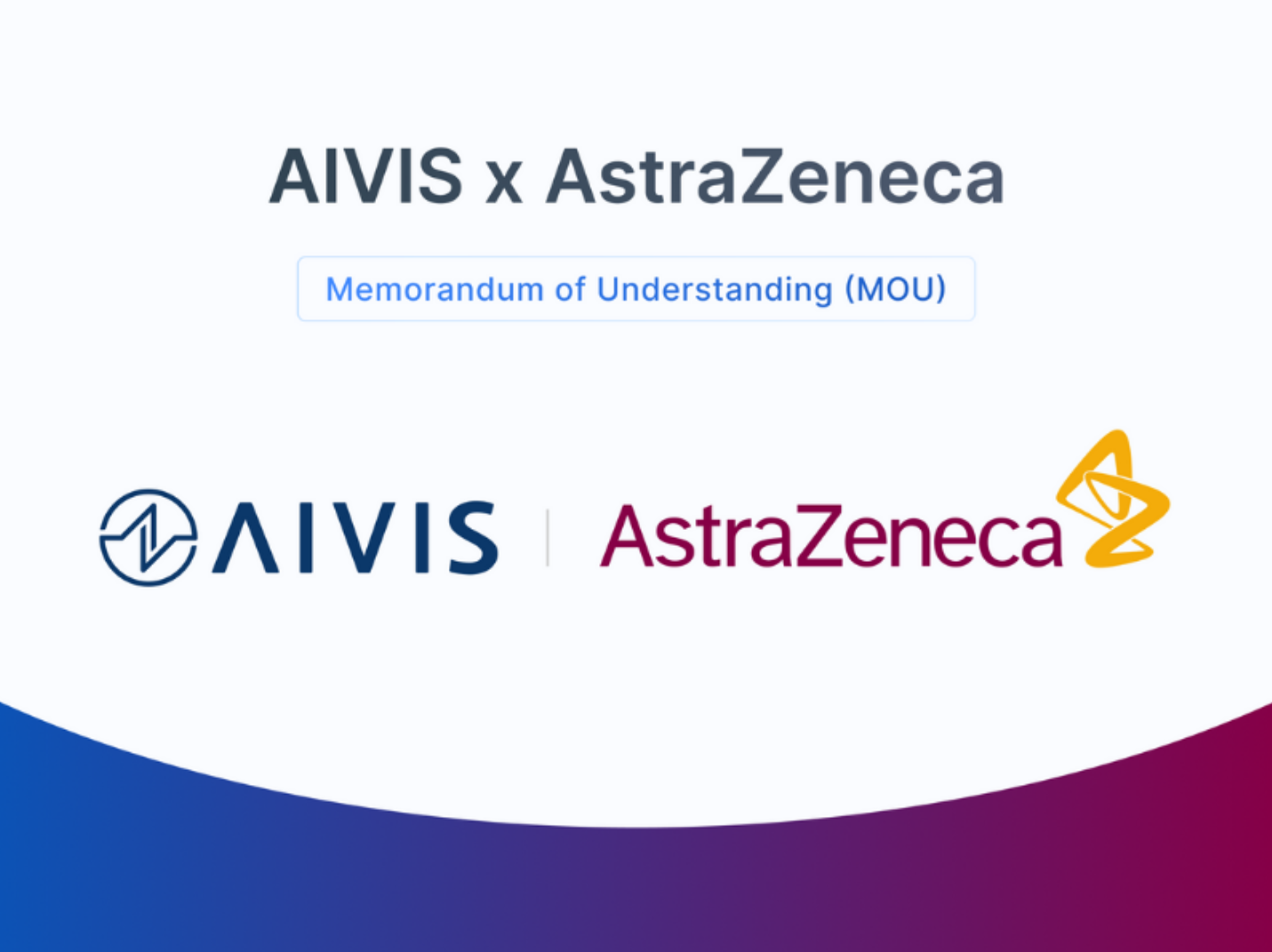AstraZeneca Korea and AIVIS Partner to Advance AI-Powered HER2 Diagnostics in South Korea
pathology news
July 16, 2025

The collaboration aims to improve diagnostic accuracy in line with the evolving HER2 classification system, including HER2-low and HER2-ultralow subtypes. By leveraging AIVIS’s AI-powered technology, the partnership seeks to enable precise IHC score quantification and support a paradigm shift in HER2 diagnosis and treatment. AstraZeneca Korea (CEO: Chon Se-whan) announced that it signed a Memorandum of Understanding (MOU) on July 15 with AIVIS (CEO: Lee Daehong), an AI-based computational pathology startup, to establish an AI-based HER2 diagnostic ecosystem. The signing ceremony was held at AstraZeneca Korea's headquarters in Samseong-dong. Through this agreement, the two companies plan to actively collaborate to support accurate HER2 diagnostics aligned with the new HER2 classification system and to help ensure timely access to innovative treatment options for Korean cancer patients. HER2 (Human Epidermal Growth Factor Receptor 2) is a protein that plays a key role in the growth and division of cancer cells and is considered an important biomarker [1][2]. In breast cancer, where HER2 expression plays a critical role in treatment strategy, accurate HER2 diagnostics are essential for determining the most appropriate therapy for each patient [1][2]. Recently, a new HER2 classification system has been introduced that goes beyond the traditional binary distinction between HER2-positive and HER2-negative. This new system includes categories such as HER2-low and HER2-ultralow [3][4]. As a result, there is an increasing need for more accurate HER2 diagnostics through the quantification of IHC (immunohistochemistry) scores, which are commonly used for HER2 testing [2][4]. Until now, IHC testing has typically relied on visual interpretation by pathologists using a microscope to assess the staining intensity of the cell membrane [2]. However, this conventional method is time-consuming, labor-intensive, and subject to inter-observer variability [4]. In contrast, AI-based HER2 diagnostic technologies are expected to address these limitations by enabling quantitative HER2 assessment, paving the way for a paradigm shift in both diagnosis and treatment [4]. Through this MOU, AstraZeneca Korea will support the successful introduction and implementation of AIVIS’s AI-based biomarker quantification solution, Qanti® IHC, in Korean clinical settings. The two companies will also collaborate on joint studies to validate the clinical utility of AI-powered HER2 diagnostics and generate real-world evidence to support adoption in practice. Chon Se-whan, CEO of AstraZeneca Korea, stated: “At AstraZeneca Korea, we are committed not only to introducing innovative medicines but also to providing patient-centric solutions across the full continuum of care—from diagnosis to treatment. Through this partnership, we aim to bring AI-powered diagnostic technologies into Korean clinical settings, particularly for precision classification systems like HER2-low and HER2-ultralow, so that more patients can receive the right treatment at the right time.” Lee Daehong, CEO of AIVIS, commented: “As HER2 classification becomes more refined, the need to accurately distinguish subtle staining differences is increasing. This underscores the growing importance of AI-driven quantification and diagnostic standardization in HER2 diagnostics. AIVIS will continue to develop AI-based HER2 diagnostic solutions that reduce pathologist workload, improve diagnostic reliability, and ensure that Korean cancer patients receive accurate diagnoses and effective treatment options.” About AstraZeneca Korea AstraZeneca entered the Korean pharmaceutical market through a joint venture in 1981. Astra Korea and Zeneca Korea were established in 1992 and 1997 respectively, and the official Korean subsidiary, AstraZeneca Korea, was launched in 1999 following the global merger of Astra and Zeneca in 1998. AstraZeneca Korea, with approximately 400 employees nationwide, is committed to providing effective treatment options and contributing to medical research and pharmaceutical innovation through collaborations with Korean bio ventures and medical institutions. The company has also been running its social contribution program, “Hope Springs,” since 2005 to support the healthy growth and dreams of children of cancer patients. About AIVIS Founded in 2021, AIVIS is a company specializing in AI-powered computational pathology solutions. Its flagship SaMD (Software as a Medical Device) platform, Qanti®, significantly improves the accuracy of cancer diagnosis and treatment. AIVIS's core technology is its proprietary AI biomarker quantification algorithm, designed for precise, cell-level analysis of cancer tissue images. By collaborating closely with in-house pathologists and researchers, AIVIS has developed software optimized for real-world clinical workflows. As of 2024, AIVIS has obtained GMP and ISO 13485 certifications and received two MFDS (Korea’s Ministry of Food and Drug Safety) approvals. Under partnerships with global companies such as Philips and AstraZeneca, AIVIS currently supplies its solutions to more than 10 major hospitals in Korea, spearheading the advancement of precision medicine using AI. References [1] Taejung Kim et al. Comparison of Silver In Situ Hybridization and Fluorescence In Situ Hybridization for HER2 Gene Amplification Analysis in Breast Cancer. Journal of Breast Cancer, 2009, 12(4), 295–300. [2] N. Iqbal et al. Human Epidermal Growth Factor Receptor 2 (HER2) in Cancers: Overexpression and Therapeutic Implications. Molecular Biology International, 2014: Article ID 852748. [3] A.C. Wolff et al. Human Epidermal Growth Factor Receptor 2 Testing in Breast Cancer. Archives of Pathology & Laboratory Medicine, 2023; 147:993–1000. [4] D.A. Albuquerque et al. Systematic Review and Meta-Analysis of Artificial Intelligence in Classifying HER2 Status in Breast Cancer Immunohistochemistry. NPJ Digital Medicine, 2025; 8(144).